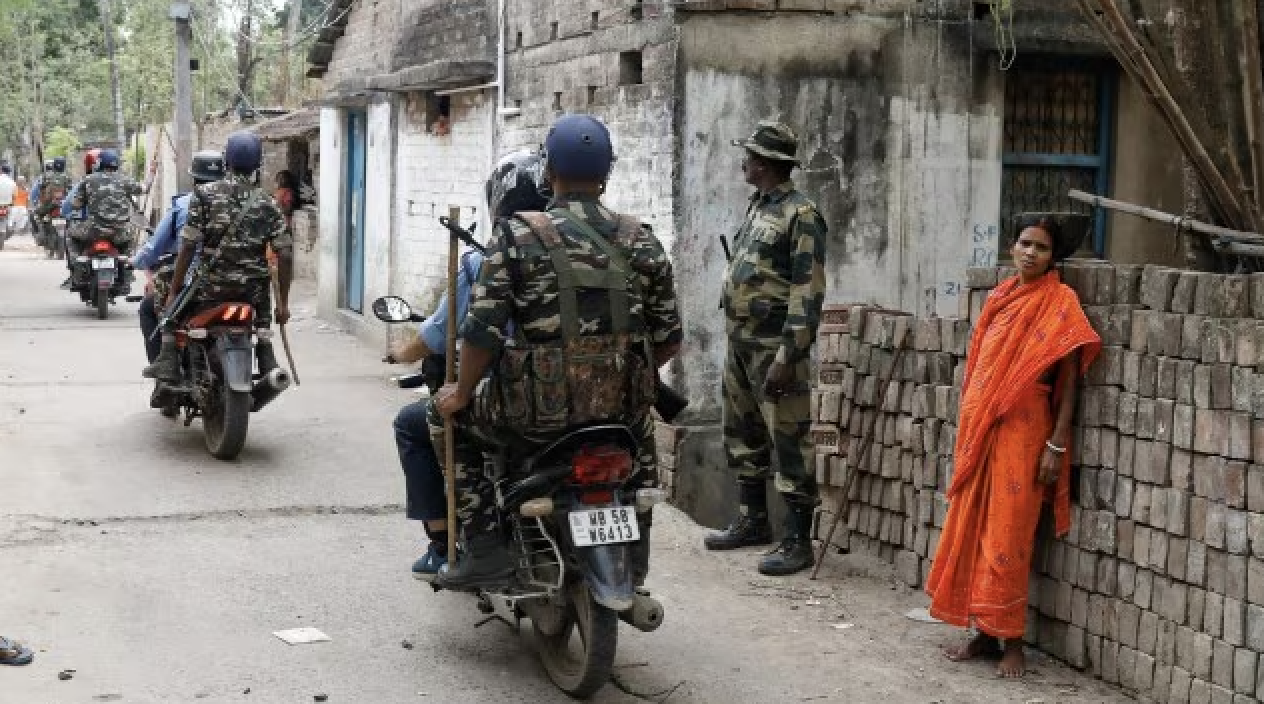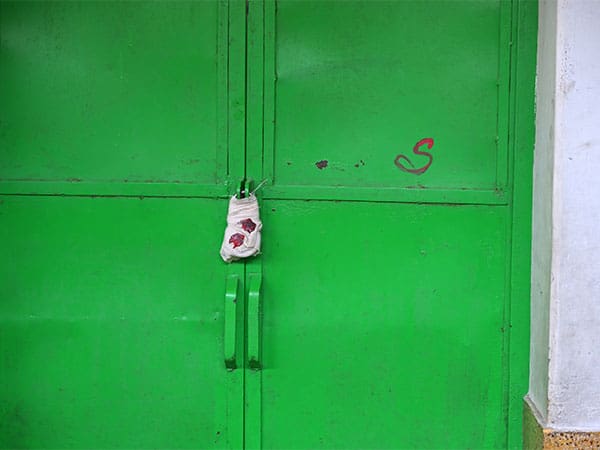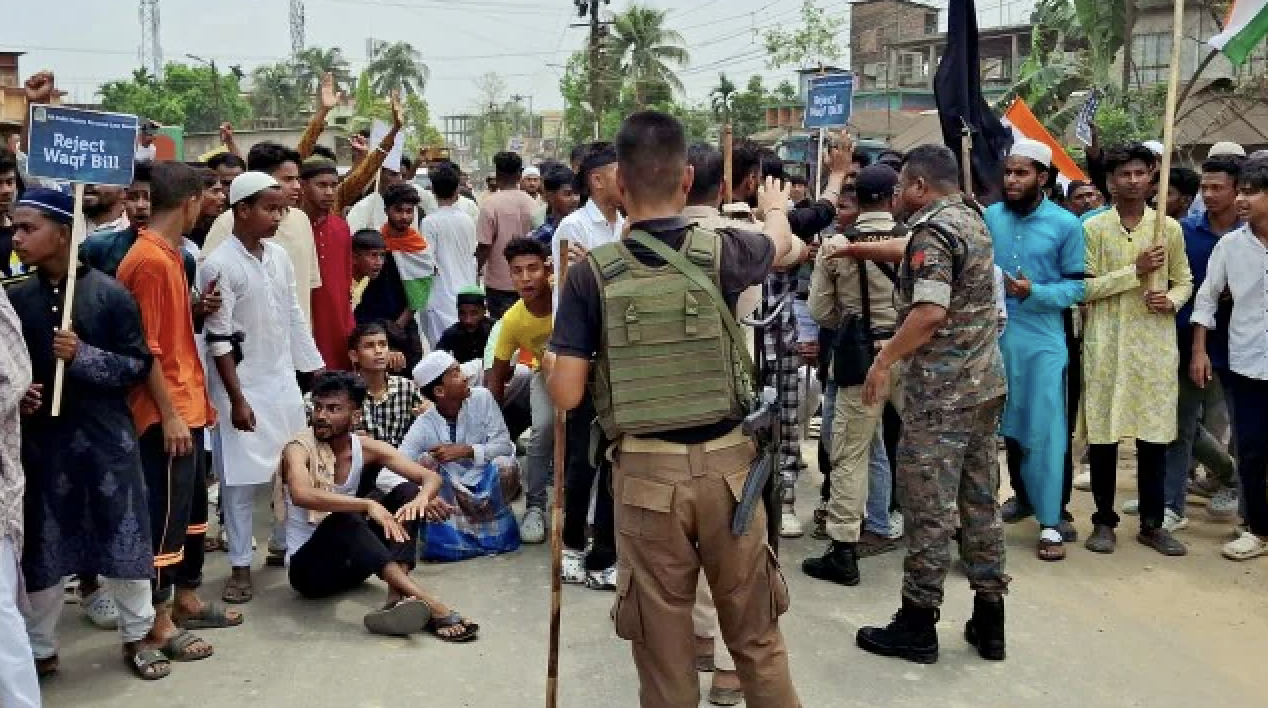
New Delhi: The Criminal Procedure (Identification) Bill, 2022 – which seeks to expand the powers of investigating officers to collect biometric details of prisoners – was passed by parliament despite strong protests by opposition leaders that it would herald a police state.
The Act will allow the police to collect a host of biometric data from prisoners, including fingerprint impressions, palm print impressions, footprint impressions, photographs, iris and retinal scans and other physical and biological samples. Moreover, it also proposes that police personnel be allowed to collect behavioural attributes of prisoners, including handwriting samples and signatures.
Trinamool Congress MP Mahua Moitra opposed the Bill, saying without adequate safeguards, it has the potential to provide inordinately wide discretionary powers to the government. She requested that the Bill be sent to a Standing Committee.
The Wire is publishing the speech in which she reasons why the Bill gives draconian powers to the government. It has been edited lightly for style and clarity.
Honourable chairperson sir. I stand on behalf of my party, the All India Trinamool Congress, to debate the Criminal Procedure (Identification) Bill, 2022 which was introduced by the minister of state for home affairs last week to repeal the Identification of Prisoner’s Act, 1920. The introduction of this Bill in this house was met with vigorous protests from the opposition benches and in fact, was one of the very rare occasions when there was a division sought at the threshold introductory stage of a Bill.
The original Bill in 1920 was passed by our colonisers, the British government, in a desperate attempt to control nationalist forces by expanding the scope of surveillance. It authorised authorities to take photographs, fingerprints and footprint impressions of convicted (and, in certain cases, non-convicted) persons and store them.
It is both ironic and tragic that a century later, an elected Indian government that claims to be more nationalistic than all its predecessors, is bringing in a repealment law that is more intrusive and collects even more personal data – with even fewer checks and balances that the British-era law did.
The stated objective of the Criminal Procedure (Identification) Bill of 2022, which was introduced in parliament last week, as set out in its Statement of Objects and Reasons, is to update the law by taking into account new techniques of “measurement” and identification that have evolved over the last century.
This Bill seeks to authorise police or prison officers to take ‘measurements’ of those who have been arrested, detained, convicted, or any person directed by a judicial or executive magistrate.
This Bill redefines ‘measurements’ to allow the police to take iris and retina scans, photographs, finger impressions, palm-print impressions, footprint impressions, physical and biological samples, and their analysis. The Bill will also allow the police to collect behavioural attributes including signatures and handwriting, or any other examination referred under Sections 53 or 53A of the Code of Criminal Procedure, 1973. This Bill shall also interact with the DNA Technology Regulation Bill, 2019, if both are passed by parliament.
So what is it exactly that is so dangerous about this Bill?
This law is being proposed in the absence of any overarching data protection law – which India so desperately needs for the protection of its citizens’ rights and freedoms.
With the advance in technology, the state has ever greater powers of surveillance over citizens. So when we in this House, authorise any legal expansion of the ambit of those powers we need to ensure that these powers can be regulated properly. The old Act was only photographs and fingerprints, now when you add retina scans, biological samples and even “behavioural attributes” such as handwriting, we are signing off on much greater powers of the state so we need to put in place rock-solid safeguards. Which this Bill is totally lacking.
The malafides of the proposed Bill are apparent not only in the unconstitutional provisions it seeks to enforce but even in its Statement of Objectives – the Bill seeks to blur any and all distinction between an “undertrial, a detainee, a suspect, and a convict” by using the words “any person involved in any crime”.
The expansion of the ambit of the law’s operation to people who have been arrested for any offence, including people detained under preventive detention laws. places the privacy of individuals who are not convicted of any wrongdoing at the mercy of the state.
As Faiz Ahmed Faiz put it:
“Teer e Ilzaam Bhi, Sangh e Dushnaam Bhi.”
The 1920 law enabled the taking of measurements from convicts sentenced to a prison term of one year and above, and anyone arrested on a charge that attracts such a prison term; and thirdly, one who has furnished a bond for good behaviour and peace. However, the present Bill includes all convicts, and anyone arrested under any law in force or detained under any preventive detention law. It seeks to increase the offences from a minimum of one year to a minimum of seven years imprisonment in Section 3.
But the Proviso to Section 3 is poorly drafted. If it is intended to mean that a person who is arrested in connection with an offence punishable with less than seven years (except in the case of an offence against a woman or child, in which the length of punishment is irrelevant, it is a good thing). However, the use of the word “may” in that section is itself an escape route for the protection from giving measurements. Coupled with the power of the magistrate to order the taking of measurements, it nullifies the beneficial provision of the proviso completely. So section 3 proviso read with Section 5 and the introduction of preventive detention in this law, make it far more draconian that the existing law.
I suggest that the word “may” in proviso to section 3 to changed to “shall” and it be clarified that under secton 5, the magistrate has no power to direct a person arrested for offences punishable with less than seven years (except for offences against women and children) shall not be directed to give measurements.
This Bill permits retention of the records for 75 years where the life expectancy of an Indian citizen is 69.6 years. This Bill allows the National Crime Records Bureau to share and disseminate personal data with “any law enforcement agency.” This violates the best practices of data protection, including the principle of “purpose limitation”: i.e., even where the collection of data is legitimate, data that is collected for a specific purpose should be used only for that limited purpose, and not for anything else. Extremely vague terms have been used in this Bill: “Investigation and prosecution of crime.”
Collection of personal data permanently for certain crimes may be necessary for the investigation of some crimes but we must be able to distinguish between those crimes that require it and those that don’t. This Bill does not make the distinction and hence is a case of overreach.
This Bill will make the dreaded thanadar even more dangerous – as it gives a virtual carte blanche to the police for sample collection.
The old 1920 Act only authorises police officers ranked sub-inspectors and above to take the prescribed ‘measurements’. The Bill seeks to amend this and authorise a police officer, not below the rank of a head constable, and prison officer, not below the rank of a head warden, to take measurements.
Most disturbingly, the tabled Bill has broadened the “ambit of persons” whose measurements can be taken to include any person directed by the magistrate to give their measurements, and empowers police and prison officers to take measurements of any person who resists giving measurements.
Refusal to provide these measurements would be considered an offence under Section 186 (obstructing public servant in discharge of public functions) of the Indian Penal Code (IPC).
This Bill shall allow police and prison officials to collect measurements regardless of the refusal of the concerned person to give their biometric samples and the provision for expanding the ambit of persons whose ‘measurements’ can be taken, shall now be broad enough to include civil protestors – effectively silencing even a whisper of dissent.
Even the vagueness and overbreadth of several provisions are deeply concerning – for example, the term ‘measurements’ is so broadly defined, that it raises serious concerns about the indiscriminate collection of all types of measurements and whether doing so would achieve the objective of efficient investigation and crime prevention.
The Bill also fails to provide an Appeal mechanism against the decision of the magistrate.
In my view, the most dangerous and insidious aspect of this proposed law – is the grouping of those booked for ‘preventive detention’ – Indian Citizens, like all of us sitting here in the opposition, who could be arrested and detained even before the so-called commission of any act of criminality – and as per this law, clubbed along with those arrested for serious offences and convicts.
If this Bill becomes law, India will enter a dark and dangerous phase, a full-fledged police state – and any ‘irksome’ opposition will simply be brutalised into silence with laws such as the one we are debating today.
The home ministry and this government says, “Trust us.” When you brought in the UAPA amendment Bill, I spoke on it and the honourable speaker interrupted me to say, “Aap kyo itna pareshan ho rahi hai? Yeh atankwadiyo ke liye hai. (Why are you so worried? This Bill is for use against terrorists.)” And I said, “Iss Bill agar aa jaye toh kal humein bhi atankwadi bana sakte hai. (If this Bill is passed, you can make us terrorists too.)” And the opposition has been proven correct in case of UAPA and its misuse.
Look at the increase in the number of UAPA cases from 2016-19: 5,128 cases were restered and 7,050 people were arrested but only 2.2% of cases registered resulted in a conviction.
Look at the increase in the number of preventive detention cases and the silencing of dissent by this government. Among the 177 politicians arrested in Kashmir soon after the revocation of Article 370, 71 were from the National Conference (NC) and 35 from the Peoples Democratic Party (PDP) – the two mainstream regional political parties in Jammu and Kashmir.
During the CAA protests, over 1,100 people were under arrest and 5,558 were kept in preventive detention after anti-CAA protests in UP.
There has been a 28% increase in the number of sedition cases filed each year between 2014 and 2020.
During the anti-CAA protests, 22 sedition cases involving 3,700 people were filed in BJP-ruled states.
Look at the increase in the number of arrests and detentions of journalists in India in the last decade.
A Report by the Free Speech Collective reveals, “In the last decade, 154 journalists in India were arrested, detained, interrogated or served show cause notices for their professional work. Sixty-seven of these were recorded in 2020 alone.”
Allow me to quote from the Supreme Court judgement State of AP vs Challa Ramkrishna Reddy (2000):
“The right to life is one of the basic human rights. It is guaranteed to every person by Article 21 of the constitution and not even the state has the authority to violate that right. A prisoner, be he a convict or undertrial or a detenu, does not cease to be a human being. Even when lodged in the jail, he continues to enjoy all his fundamental rights including the right to life guaranteed to him under the constitution. On being convicted of crime and deprived of their liberty in accordance with the procedure established by law, prisoners still retain the residue of constitutional rights.”
Our democracy, however flawed, seeks to give each Indian equal rights as human beings. Our laws are based on the overriding principle of innocent till proven guilty. As the poet Javed Akhtar puts it so aptly:
Mujhe dushman se bhi khuddari ki umeed rahti hai
Kisi ka bhi ho sar – qadmon mein sar achha nahi lagta
This Bill places the privacy of individuals at the mercy of the state; allows for the retention of personal data with no framework for data protection whatsoever. I appeal to the government and to the honourable home minister to take back this bill or at the very least refer it to a Standing Committee.
Thank you.
This article first appeared on thewire.in






